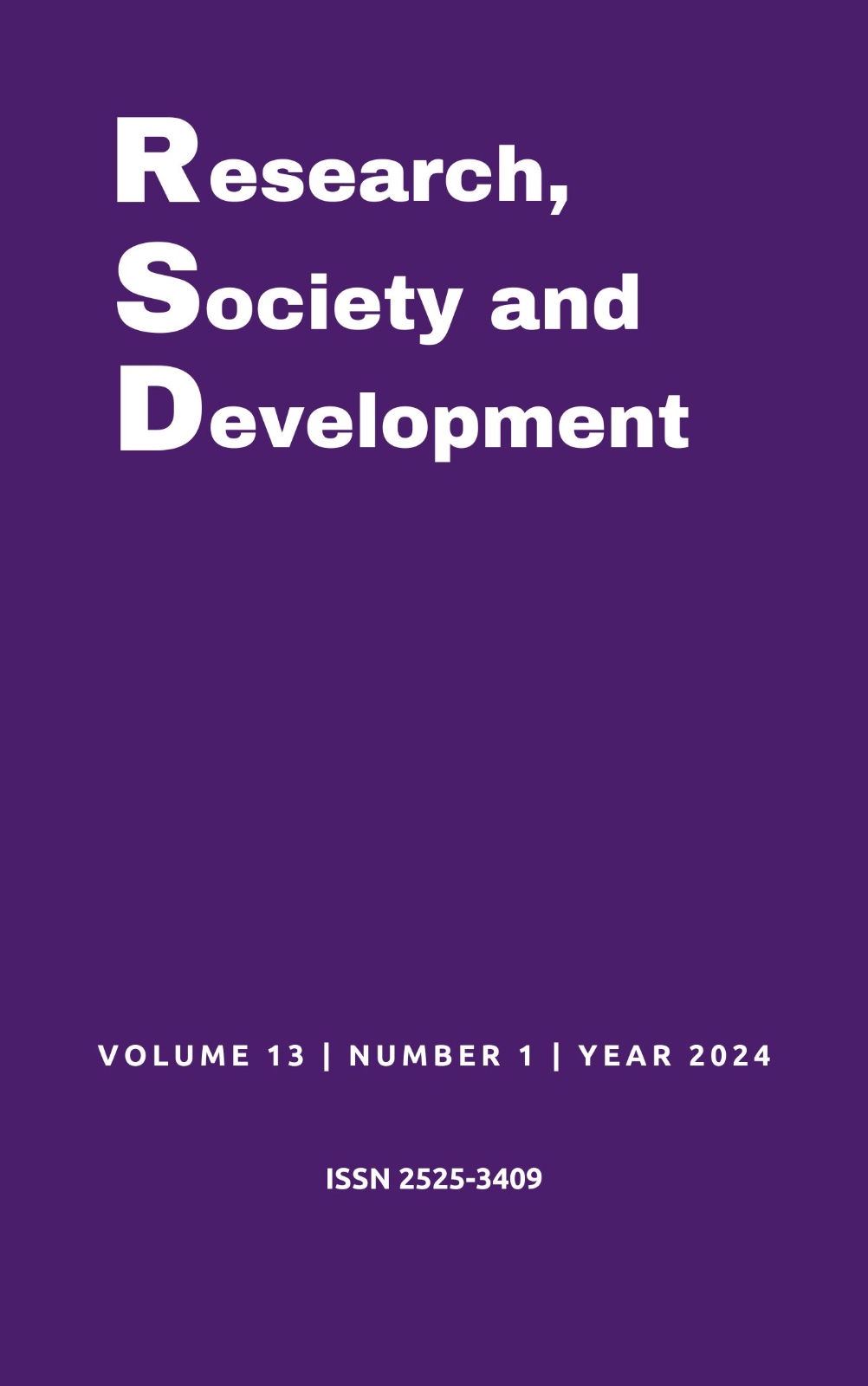Angola: An unacceptable reality of poverty and inequality
DOI:
https://doi.org/10.33448/rsd-v13i1.44414Keywords:
Poverty, Inequality, Social rights, Development.Abstract
Angola is not inherently a poor country, but rather has been affected by a history of slavery and civil conflicts, generating injustice, inequality and a large portion of the population living in precarious conditions. The limitations faced, such as the lack of access to essential social rights for the majority of the population, together with inequalities in economic and social opportunities, are the main drivers of poverty. Placing the country in last position among the PALOP in the 2023 Legatum Prosperity Index and occupying the penultimate position in relation to its neighboring countries. This study seeks to analyze the trajectory and characteristics of poverty and inequality in Angola, adopting Amartya Sen's approach to combat deprivation and promote individual freedoms as a way to reduce poverty. While it is not feasible to address all social deprivations in this limited space, we focus on fundamental social rights such as education, health and employment. We conclude that strategies must prioritize not only economic growth, but also the promotion of individual freedoms and skills, facilitating access and use of social policies for the most vulnerable populations, breaking down social barriers.
References
Arrighi, G. (2002). The African Crisis. New Left Review, 15, 5-36.
Akerman, A., Elhanan, H., Oleg, I., Marc-Andreas, M. & Stephen, R. (2013). Sources of Wage Inequality. American Economic Review, 103 (3): 214-19.DOI: 10.1257/aer.103.3.214
Awalli, J. O. (2014). Poverty and health care demand in Kenya. BMC Health Services Research. (14), 5650-5657.
Azcúnaga, I. L., & Álvares, A. M. (2013) Poverty in Sub-Saharan Africa: A Reflection on its Causes - Memory of the Biennial Ibero-American Forum on Development Studies. Chile. https://www.riedesarrollo.org/memorias/2013/mesas/mesa1/1.II.3%20Isabel%20Lopez%20-%20Alejandra%20Machin% 20_Pobreza%20en%20Africa%20SS.pdf.
African Development Bank. (2023). Economic Outlook of Angola. https://www.afdb.org/pt/paises-africa-austral-angola/perspetiva-economica-de-angola.
Barros R. P., Henriques. R., & Mendonça, R. (2000). Inequality and Poverty in Brazil: Portrait of an Unacceptable Stability. RBCS – Brazilian Journal of Social Sciences. 15(42). https://doi.org/10.1590/S0102-69092000000100009.
Bogdan, R. C., & Biklen, S. K. (2003). Qualitative Research in Education. Porto: Porto Editora. https://www.academia.edu/6674293/Bogdan_Biklen_investigacao_qualitativa_em_educacao. Chizzotti, A. (2000). Research in Human and Social Sciences. São Paulo: Cortez. 7th ed. 16. https://pt.scribd.com/document/529176503/5-CHIZZOTTI-Pesquisa-Em-Ciencias-Humanas-e-Sociais.
Commission for Africa. (2005). Our Common Interest, Department for International Development, London. Kindle edition. ISBN-13, 978-0141024684.
Institute of National Statistics (Inea). (2020). Poverty Report for Angola: Survey on Expenses and Revenues. https://www.ine.gov.ao/publicacoes/Pesquisapopular/Relatorio.
Lakatos, E. M., & Marconi, M. A. (2009). Scientific Methodology. Atlas.
https://soniaa-arq.prof.ufsc.br/arq1001metodologiacinetificaaplicada/2013/grupo2/06.pdf.
Legatum Institute. (2023). Prosperity Index. https://www.prosperity.com/rankings.
Gadelha, C. A. G. (2007). Development and Health: In Search of a New Utopia. Health in Debate. Rio de Janeiro, 9(71), 326-327.
Marshall, A. (1890). Principles of Economics. London: Macmillan and Co.
https://eet.pixel-online.org/files/etranslation/original/Marshall,%20Principles%20of%20Economics.pdf.
Narayan, D. (2000). Voices of the Poor. Can anyone hear us? Oxford: Oxford Press for the World Bank. pp.280. https://www.rrojasdatabank.info/voices/vol1.pdf.
Pereira A. S., Shitsuka, D. M., Parreira, F. J., & Shitsuka, R. (2018). Scientific Research Methodology. Santa Maria/RS. https://repositorio.ufsm.br/bitstream/handle/1/15824/Lic_Computacao_Metodologia-Pesquisa-Cientifica.pdf?sequence=1.
Rafael, F. M. M. (2023). Reduction of Social Inequality: The Role of Private Investment in Angola. Boa Vista: Editora. pp. 149. https://www.researchgate.net/publication/368849353_Reducao_da_Desigualdade_SociaL_O_Papel_do_Investimento_Privado_em_Angola.
Rocha, S. (2000). Poverty in Brazil: What is it About? FGV. https://edisciplinas.usp.br/pluginfile.php/600948/mod_resource/content/1/livro_sonia_rocha.pdf.
Rocha, A. (2020) Poverty and Income Inequality in Angola. https://www.expansao.co.ao/opiniao/alves-da-rocha/interior/pobreza-e-desigualdade-de-rendimentos-em-angola-85108.html.
Sen, A. (1999). Poverty and Famines: An Essay on Entitlement and Deprivation. Lisbon: Terramar Editora.
Sen, A. (2000). Development as Freedom. Oxford: Oxford University Press. http://www.c3l.uni-oldenburg.de/cde/OMDE625/Sen/Sen-intro.pdf.
Severino, A. J. (2018). Scientific Work Methodology. Ed. Cortez, 6 (3). https://www.ufrb.edu.br/ccaab/images/AEPE/Divulga%C3%A7%C3%A3o/LIVROS /Metodologia_ do_Trabalho_Cient%C3%ADfico-1%C2%AAEdi%C3% A7%C3%A3o_-_Antonio_Joaquim_Severino_-_2014.pdf.
Silva, T. M. (2020). Poverty and Health: What Perspective of Healthy Life Will We Have for the 21st Century? In: Cianciarullo, T.I.; Cornetta, T. Health, Development, and Globalization. São Paulo: Ícone, pp. 37-53.
Schwartzman, S., & Reis, E. P. (2005). Poverty and Social Exclusion: Socio-Political Aspects. Brasília: Ipea: World Bank. pp. 306. https://www.schwartzman.org.br/simon/pdf/exclusion.pdf.
Triviños, G. A. (1987). Introduction to Research in Social Sciences: Qualitative Research in Education. Atlas.
African Union (2023). GDP of the Main African Economies. https://datosmacro.expansion.com.
World Health Organization (WHO). (2011). Rio Political Declaration on Social Determinants of Health. Rio de Janeiro, Brasília. www.who.int/sdhconference/declaration/Rio_political_declaration_portuguese.pdf.
Wang, Y. (2022). Combating Extreme Poverty in China after Reform and Opening Up: 1978-2020. Higher Institute of Economics and Management. Dissertation. https://www.repository.utl.pt/handle/10400.5/26743.
Downloads
Published
Issue
Section
License
Copyright (c) 2024 Osvaldo Israel Salumbongo Cassinela; Ivan Cacknazarof

This work is licensed under a Creative Commons Attribution 4.0 International License.
Authors who publish with this journal agree to the following terms:
1) Authors retain copyright and grant the journal right of first publication with the work simultaneously licensed under a Creative Commons Attribution License that allows others to share the work with an acknowledgement of the work's authorship and initial publication in this journal.
2) Authors are able to enter into separate, additional contractual arrangements for the non-exclusive distribution of the journal's published version of the work (e.g., post it to an institutional repository or publish it in a book), with an acknowledgement of its initial publication in this journal.
3) Authors are permitted and encouraged to post their work online (e.g., in institutional repositories or on their website) prior to and during the submission process, as it can lead to productive exchanges, as well as earlier and greater citation of published work.


